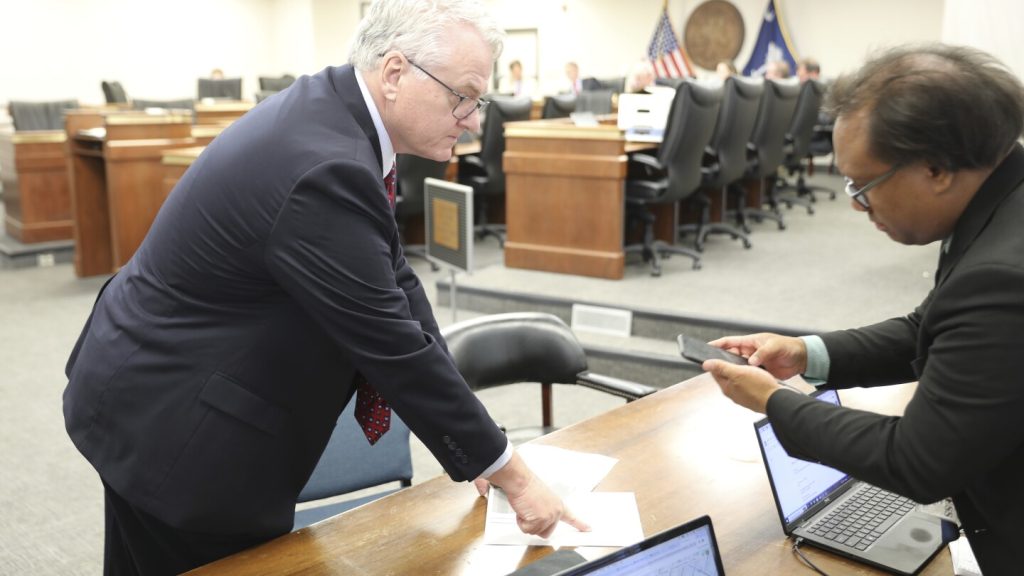A recent Senate subcommittee meeting in South Carolina raised concerns about the handling of $1.8 billion in state funds over the past decade. The meeting was supposed to focus on budget requests from the comptroller general and treasurer, but instead, the discussion was dominated by questions surrounding the missing funds and accounting errors that occurred during the state’s transition to new accounting systems. It was revealed that money was constantly shifted between accounts to balance out discrepancies, and there were instances of double-counting totaling nearly $4 billion.
Comptroller General Brian Gaines, who took over after the resignation of the previous director amid the accounting errors, explained that the account where the $1.8 billion was deposited was created by the treasurer’s office. However, Treasurer Curtis Loftis, a Republican, repeatedly denied any responsibility for balancing the books and expressed frustration at the lack of information provided by the comptroller general’s office. Loftis argued that his role is to manage the state’s banking and investments, while the comptroller general is responsible for reconciling the books.
During the meeting, Loftis mentioned the possibility of a criminal investigation related to the missing funds, but quickly retracted this statement, clarifying that there is no ongoing probe. There were suggestions that the $1.8 billion may not be readily available for state expenditures and could potentially need to be returned if it belongs to other entities. Although Loftis claimed that the investments are spread across multiple accounts, further details about the origins and intended use of the funds remain unclear.
The meeting concluded without a resolution, raising concerns among senators about the transparency and accountability of the state’s financial management. In response to the ongoing issues, some senators proposed a constitutional amendment to change the comptroller general position from elected to appointed, with a similar proposal possibly being presented to voters in November. Subcommittee chair Sen. Larry Grooms expressed frustration with Loftis, suggesting that the treasurer’s office was aware of the problems for several years. Loftis denied these accusations and defended his office’s handling of banking and investment records.
Overall, the meeting highlighted the challenges faced by South Carolina in managing its finances and ensuring proper oversight of state funds. The conflicting statements from key officials, along with the lack of concrete information about the missing $1.8 billion, have raised concerns about the integrity of the state’s financial records. The proposed constitutional amendments may be a step towards improving accountability and transparency in financial management, but further investigation and cooperation between state agencies are needed to address the underlying issues and prevent similar incidents in the future.


